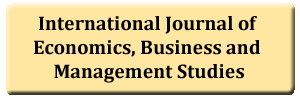Mediating effect of ambiguity tolerance in automated writing evaluation research model
DOI:
https://doi.org/10.55284/ajssh.v9i2.1178Keywords:
Generative artificial intelligence, Ambiguity tolerance, Automated writing evaluation, Mobile assisted English learning, Partial least square structural equation modeling, Technology acceptance model, Task technology fit model, Individual characteristics.Abstract
In light of the advancement of generative artificial intelligence (GenAI) technology-empowered automated writing evaluation (AWE) system represents a revolutionary paradigm at the forefront of mobile assisted English learning (MAEL). Numerous empirical studies have been carried out to test the efficacy of automated writing corrective feedback in writing assistance. However, it has seldom been investigated from the cognitive stance of AWE technology enhanced embodied learning. Embodied cognitive linguistics intensifies that learning experience is enhanced in the process of conceptualizing the empirical world. Therefore, the current study explores technology characteristics and individual characteristics incorporating the psychological construct of ambiguity tolerance. Emanating from psychology, ambiguity tolerance describes people’s preponderance to manage uncertainties and unpredictable challenges in the learning process. This study utilized the partial least square structural equation modeling (PLS-SEM) method to analyze 679 valid questionnaire responses via SPSS 29 and SmartPLS 4. The results elucidated that the AWE research model incorporating the technology acceptance model (TAM model), task technology fit model (TTF model), and individual characteristics could predict the user’s adoption of AWE software in the completion of writing tasks. Moreover, ambiguity tolerance functions as an effective mediator in the GenAI technology-empowered automated writing evaluation research model. This study provides technical implications for AWE developers to design AWE software suitable for individual characteristics. Future research could combine qualitative research methods with multivariant statistical approaches to meticulously investigate the interaction of literacy cultivation and emotional intelligence in the utilization of AWE technology for academic purposes in the GenAI era.




